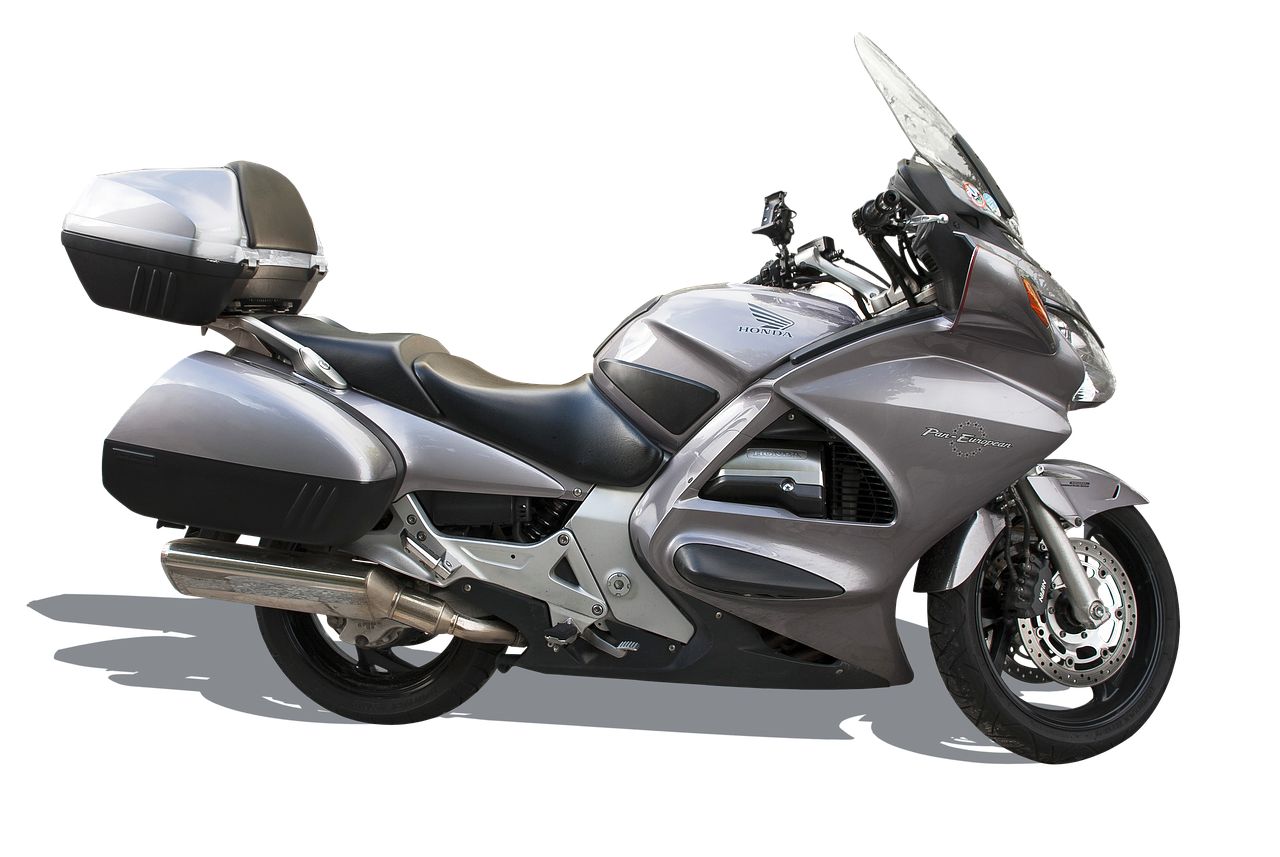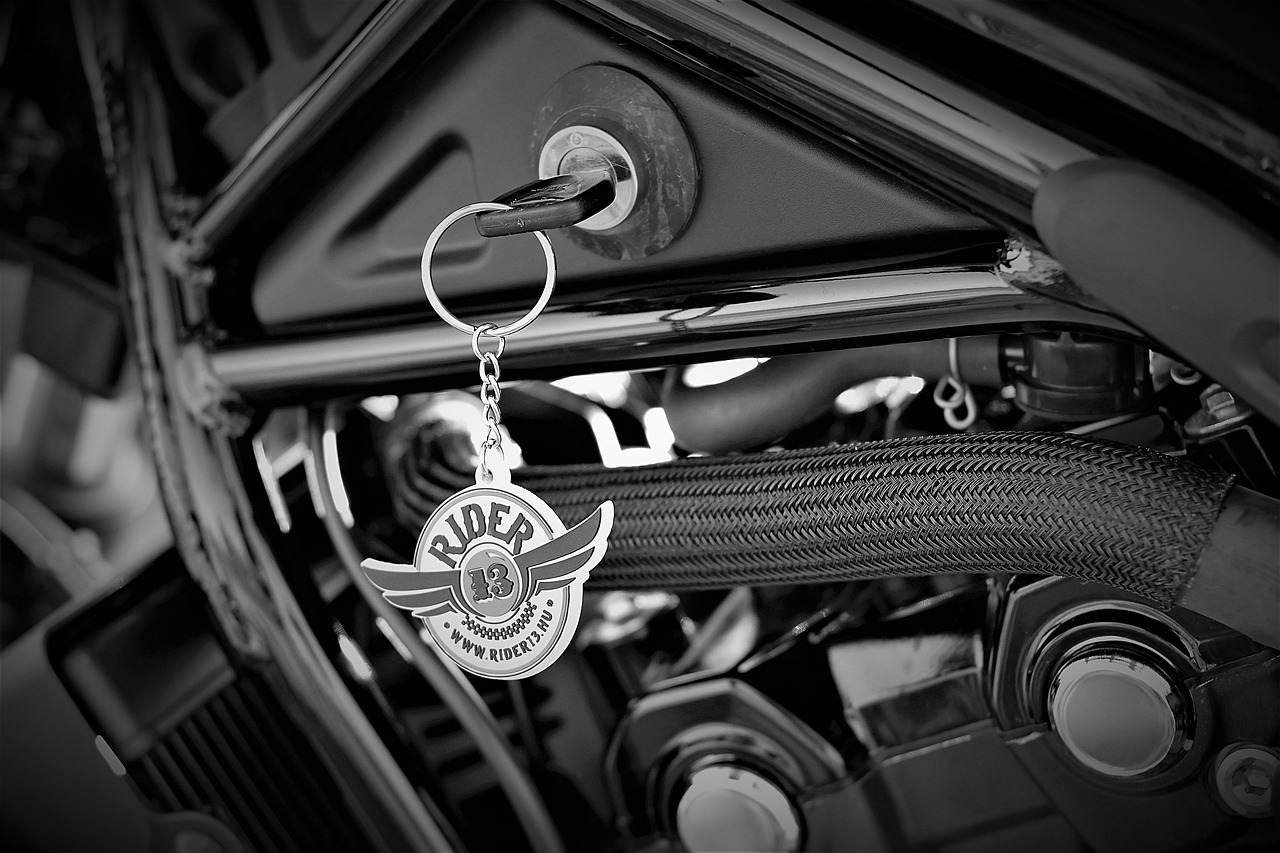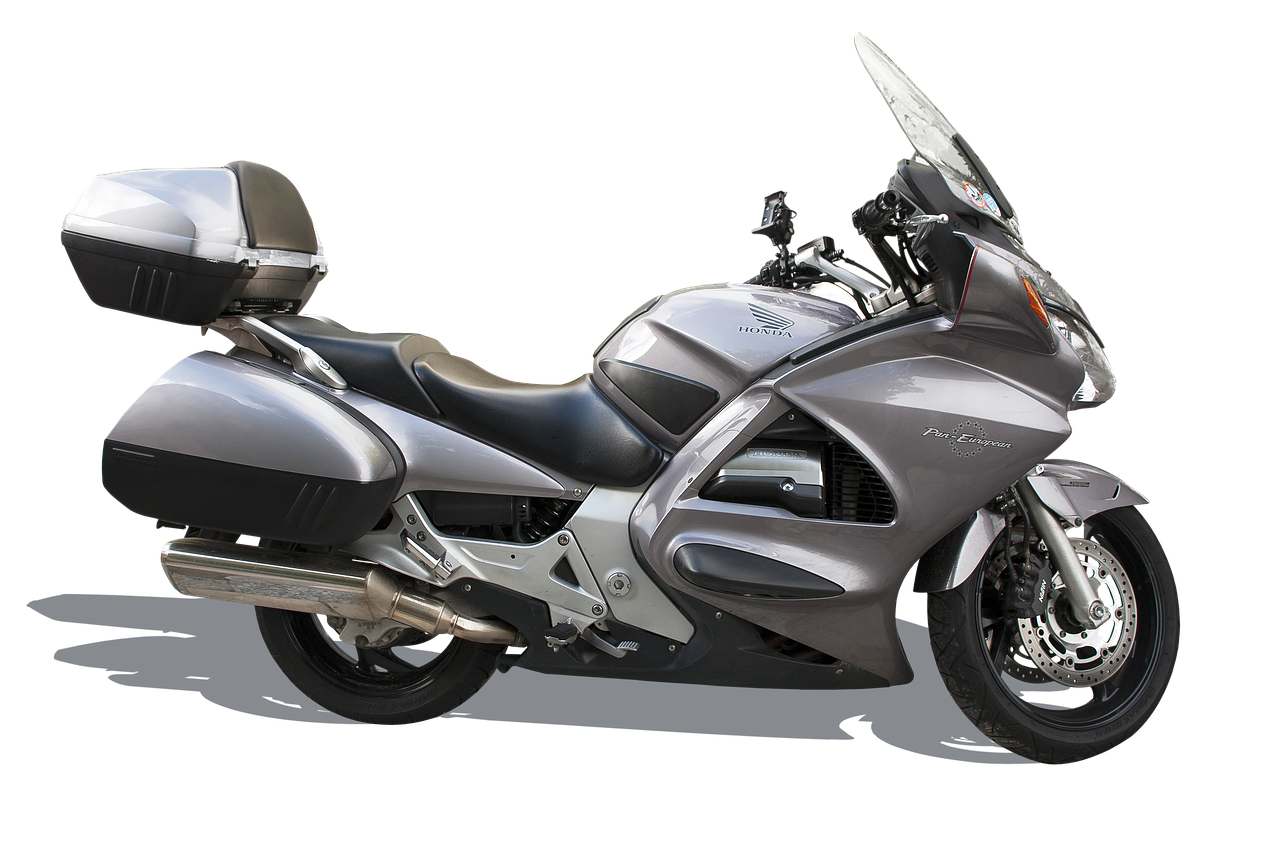This article provides a comprehensive overview of leasing a Honda Civic, covering key considerations, benefits, and tips to help you make an informed decision.
Leasing a vehicle can be an attractive option for many drivers, especially for those who appreciate the latest technology and features without the long-term commitment of ownership. In this guide, we will delve into the essential aspects of leasing a Honda Civic, a popular choice among compact cars.
Understanding the Basics of Car Leasing
Leasing a car is essentially a long-term rental agreement, typically lasting two to three years. During this period, you pay a monthly fee to use the vehicle while the leasing company retains ownership. Key terms to understand include:
- Down Payment: An initial payment made at the start of the lease.
- Residual Value: The estimated value of the car at the end of the lease term.
- Mileage Limits: The maximum number of miles you can drive without incurring extra fees.
Why Choose a Honda Civic?
The Honda Civic has earned a reputation for its reliability, fuel efficiency, and strong resale value. Here are some reasons why leasing a Civic might be a wise decision:
- Performance: The Civic offers a dynamic driving experience with various engine options.
- Safety: Consistently high safety ratings make it a secure choice for families.
- Technology: Modern features enhance convenience and connectivity on the road.
Leasing vs. Buying: What’s the Difference?
When considering whether to lease or buy, it’s crucial to understand the differences:
- Cost Comparison: Leasing often requires lower upfront costs and monthly payments compared to purchasing.
- Long-Term Commitment: Leasing typically involves a shorter commitment, allowing you to drive a new vehicle every few years.
What to Consider Before Leasing
Before signing a lease for a Honda Civic, consider your budget, driving habits, and lease terms. Key factors include:
- Monthly Payments: Calculate your budget to understand what you can afford.
- Mileage Limits: Be aware of the mileage restrictions to avoid additional fees.
How to Negotiate Your Lease
Negotiating your lease can lead to better terms. Familiarize yourself with key lease terms and research to find the best deals available. This preparation can empower you during negotiations.
Returning Your Leased Honda Civic
At the end of your lease, you will need to return your vehicle. The process includes:
- Inspection: Prepare for an inspection to assess any damage or excessive wear.
- End-of-Lease Options: Consider whether to purchase the vehicle or lease a new one.
By understanding these aspects of leasing a Honda Civic, you can make an informed decision that aligns with your needs and lifestyle.

Understanding the Basics of Car Leasing
Leasing a car is an increasingly popular option for many drivers looking for flexibility and affordability. Essentially, leasing involves renting a vehicle for a predetermined period, typically ranging from two to three years. This arrangement allows drivers to enjoy a new car without the long-term commitment of purchasing one outright.
When considering leasing, it’s crucial to understand the fundamental concepts involved. Lease agreements outline specific terms and conditions that govern the use of the vehicle. These may include:
- Lease Term: The duration of the lease, often between 24 to 36 months.
- Monthly Payments: Payments are generally lower than loan payments for purchasing a car, making leasing an attractive option for budget-conscious consumers.
- Mileage Limits: Most leases come with annual mileage restrictions, typically between 10,000 to 15,000 miles. Exceeding these limits can result in additional fees.
- Residual Value: This is the estimated value of the car at the end of the lease, which influences monthly payments.
- Maintenance Responsibilities: Lessees are often required to maintain the vehicle in good condition, adhering to specific service schedules.
Understanding these terms is vital for making informed decisions. Leasing can offer several advantages, such as driving a new car every few years and lower repair costs since many leased vehicles are still under warranty. However, it’s also essential to consider potential drawbacks, such as mileage limitations and the fact that you do not own the car at the end of the lease.
In summary, grasping the basics of car leasing is fundamental to navigating the leasing process effectively. By familiarizing yourself with the key terms and conditions, you can better assess whether leasing is the right choice for your driving needs.

Why Choose a Honda Civic?
The Honda Civic has long been a favorite among drivers for its blend of reliability, fuel efficiency, and excellent resale value. These attributes make it a compelling choice for those considering leasing a vehicle. In this section, we will delve into the reasons why leasing a Civic can be a smart decision for many drivers.
- Outstanding Reliability: The Honda Civic is renowned for its durability and long-lasting performance. Many drivers report minimal maintenance issues, allowing for a worry-free driving experience.
- Fuel Efficiency: With impressive fuel economy ratings, the Civic helps drivers save on gas. Depending on the model, it can achieve up to 42 miles per gallon on the highway, making it an economical choice for daily commuters.
- Advanced Safety Features: The Civic is equipped with state-of-the-art safety technology, including collision mitigation braking, lane-keeping assist, and adaptive cruise control. These features not only enhance safety but also contribute to lower insurance costs.
- High Resale Value: When the lease term ends, the Civic typically retains a higher resale value compared to many competitors. This factor can make leasing a more attractive option, as it often translates to lower monthly payments.
- Variety of Models: The Honda Civic comes in various trims and styles, from sedans to hatchbacks, catering to different preferences and needs. This diversity allows drivers to choose a model that best fits their lifestyle.
- Technology and Comfort: The Civic is packed with modern technology, including touchscreen infotainment systems, smartphone integration, and comfortable seating. These features enhance the overall driving experience, making it enjoyable for both short trips and long journeys.
Given these compelling reasons, leasing a Honda Civic not only provides access to a reliable and efficient vehicle but also allows drivers to enjoy the latest features and technology without a long-term commitment. This flexibility can be particularly appealing for those who prefer to drive a new car every few years.
Performance and Fuel Efficiency
The Honda Civic stands out in the compact car segment, not only for its sleek design but also for its remarkable performance and fuel efficiency. This section delves into the engine options available for the Civic and how they enhance both driving experience and overall efficiency.
The Honda Civic offers a range of engine choices that cater to different driving preferences. The standard model typically features a 2.0-liter 4-cylinder engine, which provides a balanced mix of power and efficiency. For those seeking a more exhilarating drive, the 1.5-liter turbocharged engine is available, delivering higher horsepower while maintaining impressive fuel economy. These engines are designed with advanced technology, including variable valve timing and direct fuel injection, which optimize performance and reduce emissions.
Fuel economy is a crucial consideration for many drivers, and the Honda Civic excels in this area. Depending on the engine choice, the Civic achieves an impressive EPA rating of up to 32 mpg in the city and 42 mpg on the highway. This efficiency not only translates to fewer stops at the gas station but also contributes to lower overall ownership costs. The incorporation of features like Eco Assist helps drivers maximize their fuel efficiency by providing real-time feedback on driving habits.
The performance of the Honda Civic is complemented by its responsive handling and comfortable ride quality. The lightweight chassis and well-tuned suspension provide a sporty feel without sacrificing comfort. Whether navigating city streets or cruising on the highway, the Civic’s performance-oriented design ensures an engaging driving experience.
In summary, the Honda Civic’s combination of diverse engine options, exceptional fuel economy, and enjoyable driving dynamics make it a compelling choice for those looking to lease a vehicle that balances performance with efficiency.
Engine Options
The Honda Civic has long been a favorite among car enthusiasts and everyday drivers alike, thanks in part to its diverse range of . When it comes to leasing a Honda Civic, understanding these engine choices is crucial as they can significantly impact both performance and overall leasing costs.
Honda offers several engines for the Civic, catering to various driving preferences and needs. The standard engine is a naturally aspirated 2.0-liter four-cylinder that provides a balanced mix of power and efficiency. This engine is ideal for those who prioritize fuel economy and reliability.
For drivers seeking a bit more excitement, Honda also provides a turbocharged 1.5-liter four-cylinder engine. This option delivers a more spirited driving experience without sacrificing fuel efficiency. The turbocharged engine is particularly appealing to those who enjoy a responsive throttle and a bit of extra power during highway merges or overtaking.
When considering leasing, it’s important to note how these engines can influence your monthly payments. Typically, models equipped with the turbocharged engine may come with a higher lease payment due to their enhanced performance capabilities. However, they also offer improved fuel economy, which can offset some of those costs over time.
| Engine Type | Horsepower | Fuel Economy (City/Highway) |
|---|---|---|
| Naturally Aspirated 2.0L | 158 hp | 30/37 mpg |
| Turbocharged 1.5L | 180 hp | 31/36 mpg |
Ultimately, the choice of engine can also affect your leasing decisions based on your driving habits. For instance, if you frequently drive in urban areas with stop-and-go traffic, the naturally aspirated engine may be more suitable. Conversely, if you often travel on highways or enjoy spirited drives, the turbocharged option could be worth the additional cost.
In conclusion, understanding the engine options available for the Honda Civic can help you make an informed decision when leasing. By weighing the benefits of each engine type against your personal driving needs and budget, you can find the perfect Civic that meets your expectations.
Fuel Economy Ratings
The Honda Civic has long been celebrated for its fuel efficiency, making it a popular choice among environmentally conscious drivers and those looking to save on fuel costs. This section delves into the fuel economy ratings of various Honda Civic models, providing insights into their performance in both city and highway driving conditions.
When assessing the fuel economy of the Honda Civic, it’s essential to consider the different models available, as each offers unique engine options and configurations that influence their efficiency. Below is a summary of the fuel economy ratings for some of the most popular Honda Civic models:
| Model Year | Engine Type | City MPG | Highway MPG |
|---|---|---|---|
| 2023 | 2.0L I4 | 31 | 40 |
| 2023 | 1.5L Turbo I4 | 33 | 42 |
| 2023 | 2.0L I4 Hybrid | 48 | 47 |
As shown in the table, the 2023 Honda Civic offers impressive ratings, with the hybrid model achieving up to 48 MPG in the city and 47 MPG on the highway. This level of efficiency not only reduces fuel expenses but also minimizes the vehicle’s carbon footprint, aligning with sustainable driving practices.
In addition to engine specifications, factors such as driving habits and maintenance can significantly impact real-world fuel economy. Regular maintenance, including timely oil changes and tire rotations, can help maintain optimal fuel efficiency. Furthermore, adopting smooth driving techniques—such as gradual acceleration and deceleration—can enhance your Civic’s MPG performance.
Ultimately, the Honda Civic stands out in its class for its combination of fuel economy, reliability, and overall value. Whether you’re commuting in the city or embarking on a long highway journey, the Civic’s fuel efficiency ensures that you’ll enjoy both savings at the pump and peace of mind on the road.
Safety Features and Ratings
Safety is an essential consideration for many car buyers, and the Honda Civic stands out in this regard. With a reputation for reliability and a commitment to driver and passenger protection, the Honda Civic incorporates a variety of advanced safety features and has received commendable ratings from reputable organizations.
The Honda Civic is equipped with a suite of safety technologies designed to enhance awareness and prevent accidents. Key features include:
- Adaptive Cruise Control: This feature automatically adjusts your speed to maintain a safe following distance from the vehicle ahead.
- Collision Mitigation Braking System: This system detects potential collisions and applies the brakes if necessary to avoid or lessen the impact.
- Lane Keeping Assist: Lane Keeping Assist helps keep the vehicle centered in its lane, providing subtle steering adjustments when needed.
- Road Departure Mitigation: This feature can detect when the vehicle is about to leave the roadway and can take action to prevent it.
- Multi-Angle Rearview Camera: This camera provides different views to help drivers see obstacles when reversing.
In addition to these features, the Honda Civic has consistently earned high safety ratings from organizations such as the National Highway Traffic Safety Administration (NHTSA) and the Insurance Institute for Highway Safety (IIHS). For instance, the Civic has received a 5-star overall safety rating from the NHTSA, indicating its excellent performance in crash tests.
Moreover, the IIHS has awarded the Honda Civic with the Top Safety Pick+ designation, recognizing its superior crashworthiness and advanced safety features. These accolades reflect Honda’s commitment to safety and underscore the Civic’s position as a leading choice for safety-conscious buyers.
When considering a vehicle, it’s crucial to prioritize safety features and ratings. The Honda Civic not only meets but often exceeds expectations, making it a wise investment for those who value peace of mind on the road.

Leasing vs. Buying: What’s the Difference?
When it comes to acquiring a vehicle, understanding the distinctions between leasing and buying is essential for making an informed decision that aligns with your lifestyle and financial situation. Each option offers unique advantages and potential drawbacks, making it crucial to evaluate your needs before proceeding.
Leasing Explained
Leasing a car is akin to renting; you pay for the use of the vehicle over a predetermined period, typically between two to four years. During this time, you are responsible for the vehicle’s maintenance and insurance but do not own the car. At the end of the lease, you return the vehicle to the dealership. One of the most appealing aspects of leasing is the lower monthly payments, which can make driving a new car more affordable.
Buying a Car
In contrast, buying a car involves purchasing the vehicle outright or financing it through a loan. Once the payments are completed, you own the car and can keep it as long as you wish. This option often entails higher monthly payments but provides the freedom to customize your vehicle and drive without mileage restrictions. Additionally, once the car is paid off, you can enjoy years of no payments.
Cost Considerations
| Aspect | Leasing | Buying |
|---|---|---|
| Upfront Costs | Generally lower | Higher due to down payment |
| Monthly Payments | Lower | Higher |
| Mileage Restrictions | Yes, typically 10,000-15,000 miles/year | No restrictions |
| Ownership | No | Yes |
Long-Term Commitment
Another key difference lies in the commitment length. Leasing often requires a shorter commitment, making it an attractive option for those who prefer driving new models every few years. Conversely, buying a car is a long-term investment, ideal for those who plan to keep their vehicle for several years or more.
Ultimately, the choice between leasing and buying depends on your personal preferences, financial situation, and driving habits. Evaluating these factors will guide you toward the best option for your needs.
Cost Comparison
When considering the financial implications of acquiring a vehicle, leasing often emerges as a more attractive option compared to buying. This is primarily due to the lower upfront costs associated with leasing a car, which can make it a more accessible choice for many drivers.
In a typical leasing scenario, you are required to pay a down payment that is significantly less than what you would need for purchasing a car. This initial cost often covers the first month’s payment, a security deposit, and any applicable fees, leading to a more manageable financial commitment. In contrast, buying a car usually necessitates a larger down payment, often ranging from 10% to 20% of the vehicle’s total price.
Furthermore, monthly payments for leased vehicles tend to be lower than those for financed purchases. This is because lease payments are based on the depreciation of the car during the lease term, rather than the entire purchase price. For example, if you lease a Honda Civic, your payments will reflect the car’s expected value at the end of the lease, which is generally lower than the total cost of ownership over time.
Additionally, leasing often includes warranty coverage for the duration of the lease, which means that major repair costs may be covered, further reducing your financial burden. On the other hand, as a car owner, you would be responsible for maintenance and repair costs once the warranty expires, which can add up significantly.
In summary, leasing a vehicle like the Honda Civic can lead to substantial savings in both upfront costs and monthly payments. This financial flexibility allows drivers to enjoy a new car experience without the long-term financial commitment associated with buying.
Long-Term Commitment
When it comes to making decisions about your vehicle, understanding the involved in leasing versus buying is essential. Leasing a car generally means a shorter commitment, often spanning two to three years, compared to the long-term investment associated with purchasing a vehicle. This difference can significantly impact your driving experience and financial planning.
For many drivers, leasing offers the flexibility of changing vehicles more frequently. This can be particularly appealing for those who enjoy driving the latest models with the newest technology and features. With leasing, you can drive a Honda Civic equipped with the latest safety and performance enhancements without committing to a long-term purchase.
However, it’s important to consider your long-term plans. If you anticipate significant changes in your driving needs, such as moving to a new city, starting a family, or changing jobs, leasing may provide the adaptability you require. On the other hand, if you prefer to build equity in a vehicle and plan to keep it for many years, buying might be the better option.
- Flexibility: Leasing allows you to switch vehicles every few years, keeping you up-to-date with the latest models.
- Lower Monthly Payments: Generally, lease payments are lower than loan payments, freeing up your budget for other expenses.
- No Resale Worries: At the end of the lease term, you simply return the vehicle without the hassle of selling it.
Ultimately, the choice between leasing and buying hinges on your personal preferences and circumstances. Understanding the implications of a shorter commitment through leasing can help you align your vehicle choice with your lifestyle and financial goals.

What to Consider Before Leasing
When considering leasing a Honda Civic, it is essential to evaluate several key factors that can significantly influence your overall experience and satisfaction with the vehicle. This section delves into critical considerations that every potential lessee should keep in mind.
- Budget Assessment: Before entering into a lease agreement, it’s vital to determine your budget. This includes not only the monthly payments but also other costs such as insurance, maintenance, and potential fees for exceeding mileage limits. Understanding your financial capacity will help you make a more informed decision.
- Driving Habits: Your typical driving patterns play a crucial role in determining whether leasing is suitable for you. If you have a long commute or frequently take road trips, you may need to consider leases with higher mileage limits to avoid additional fees.
- Lease Terms: Familiarize yourself with the specific terms of the lease. Lease agreements can vary significantly in terms of duration, mileage limits, and end-of-lease options. Knowing these details will help you choose a lease that aligns with your lifestyle and needs.
- Vehicle Features: The Honda Civic comes with various trim levels and options. Consider which features are essential for your daily use, such as safety technologies, infotainment systems, and fuel efficiency. This will help you select the right model that meets your requirements.
- Future Plans: Think about your long-term plans. If you anticipate significant changes in your life, such as a new job or family expansion, a lease might be more advantageous due to its shorter commitment compared to purchasing a vehicle.
By thoroughly evaluating these factors, you can ensure that leasing a Honda Civic is the right choice for your lifestyle and financial situation. Each consideration plays a pivotal role in crafting a leasing experience that suits your needs and preferences.
Monthly Payments and Budgeting
Understanding how monthly payments are calculated is essential for effective budgeting when leasing a vehicle. This section delves into the various factors that influence lease payments and offers practical guidance on how to plan your finances accordingly.
When leasing a car, several key components come into play that determine your monthly payment:
- Capitalized Cost: This is the initial price of the vehicle, which includes the negotiated price, taxes, and any additional fees. A lower capitalized cost can significantly reduce your monthly payments.
- Residual Value: This is the estimated value of the vehicle at the end of the lease term. A higher residual value typically results in lower monthly payments, as you are essentially paying for the depreciation of the vehicle during the lease period.
- Lease Term: The length of the lease, usually between 24 to 48 months, affects your monthly payment. Shorter lease terms often result in higher payments, while longer terms can spread the cost over a more extended period.
- Money Factor: This is the financing rate for the lease, equivalent to an interest rate. A lower money factor means lower monthly payments.
To effectively budget for your lease:
- Assess Your Financial Situation: Before entering a lease agreement, evaluate your monthly income and expenses to determine how much you can comfortably allocate for car payments.
- Consider Additional Costs: Remember that lease payments are just one part of the equation. Factor in insurance, maintenance, and potential mileage overages when planning your budget.
- Negotiate Terms: Don’t hesitate to negotiate the capitalized cost and money factor with the dealer to secure a more favorable lease agreement.
By understanding these factors and planning accordingly, you can make informed decisions that align with your financial goals while enjoying the benefits of leasing a Honda Civic.
Mileage Limits and Fees
When leasing a vehicle, understanding the mileage limits is crucial for avoiding unexpected fees. Most leases come with specific mileage restrictions, typically ranging from 10,000 to 15,000 miles per year. Exceeding these limits can lead to costly penalties at the end of your lease term.
Here, we delve deeper into the mileage limits and the fees associated with exceeding them:
| Mileage Limit (per year) | Typical Excess Mileage Fee |
|---|---|
| 10,000 miles | $0.15 to $0.25 per mile |
| 12,000 miles | $0.15 to $0.25 per mile |
| 15,000 miles | $0.15 to $0.25 per mile |
For instance, if your lease allows for 12,000 miles annually and you drive 15,000 miles, you could face an excess mileage fee of up to $750 at the end of your lease term. To avoid these fees, it’s essential to accurately estimate your driving habits before signing a lease.
Additionally, some leasing companies offer the option to purchase extra mileage upfront, which can be more economical than paying excess mileage fees later. If you anticipate driving more than the standard limits, consider negotiating a higher mileage allowance into your lease agreement. This can help you save money and provide peace of mind throughout your lease term.
In conclusion, being aware of mileage limits and associated fees is vital for anyone considering leasing a Honda Civic or any other vehicle. Proper planning and understanding of your driving habits can help you avoid unnecessary expenses and maximize the benefits of your lease.

How to Negotiate Your Lease
Negotiating a lease is a critical step that can significantly impact the final terms of your Honda Civic lease. Understanding how to navigate this process can lead to better monthly payments, lower fees, and overall more favorable conditions. Here are some practical tips to help you negotiate effectively.
- Do Your Research: Before entering negotiations, gather information on current lease offers for the Honda Civic. Websites, dealer promotions, and automotive reviews can provide insight into competitive rates and terms.
- Know the Market Value: Understanding the market value of the Honda Civic will give you leverage. Familiarize yourself with the vehicle’s residual value and how it affects your lease payments.
- Be Prepared to Walk Away: One of the most powerful negotiation tactics is your willingness to walk away if the terms do not meet your expectations. This approach can often lead dealers to offer better terms to retain your business.
- Negotiate the Capitalized Cost: This is the price of the vehicle that will be leased. Lowering the capitalized cost can directly reduce your monthly payments. Start negotiations below the MSRP and work your way up.
- Understand the Money Factor: The money factor is the interest rate on your lease. Knowing the current rates can help you negotiate a lower money factor, which will save you money over the lease term.
- Ask About Incentives: Manufacturers often provide lease incentives that can lower your costs. Be sure to inquire about any available promotions or rebates that could apply to your lease.
- Clarify Fees and Terms: Ensure that you fully understand all fees associated with the lease, including acquisition fees, disposition fees, and penalties for excess mileage. Negotiating these fees can save you money.
By applying these strategies, you can enhance your negotiating power and secure a lease that meets your financial needs while enjoying the benefits of driving a Honda Civic.
Understanding Lease Terms
When it comes to negotiating a lease for a Honda Civic, having a solid grasp of lease terminology is essential. Understanding these terms not only empowers you during negotiations but also ensures that you make informed decisions throughout the leasing process. Below are some key terms you should familiarize yourself with before entering into negotiations:
- Capitalized Cost: This is the total price of the vehicle, which can include the negotiated price, taxes, and fees. Knowing this figure helps you understand the basis for your monthly payments.
- Residual Value: This refers to the estimated value of the car at the end of the lease term. A higher residual value typically results in lower monthly payments, making it a crucial factor in your negotiations.
- Money Factor: This is the interest rate on the lease, expressed in a different format. Understanding the money factor can help you compare lease offers effectively and negotiate better terms.
- Lease Term: This defines the duration of the lease, generally ranging from two to four years. Knowing your preferred lease term can help you negotiate a deal that aligns with your driving needs.
- Mileage Allowance: Most leases come with a mileage limit, often between 10,000 to 15,000 miles per year. Exceeding this limit can result in hefty fees, so it’s important to discuss your driving habits during negotiations.
- Disposition Fee: This fee is charged at the end of the lease if you choose not to purchase the vehicle. Understanding this fee can help you factor it into your overall leasing costs.
By familiarizing yourself with these terms, you will be better equipped to negotiate effectively and secure the best possible deal on your Honda Civic lease. Knowledge is power, and being informed can lead to significant savings and a more satisfying leasing experience.
Finding the Best Deals
When it comes to leasing a Honda Civic, researching and comparing offers can significantly enhance your chances of securing a better lease deal. This process not only involves looking at different dealerships but also requires a keen understanding of the leasing market. Below are some effective strategies to help you find the most competitive leasing options available:
- Utilize Online Tools: Websites like Edmunds, Kelley Blue Book, and TrueCar provide comprehensive data on current lease offers. These platforms allow you to compare various deals based on your location and preferences.
- Visit Multiple Dealerships: Don’t settle for the first offer you receive. Visit several dealerships to get a sense of the market. Each dealership may have different promotions or incentives that can lead to better terms.
- Consider Timing: Timing can play a crucial role in finding a favorable lease deal. End-of-month or end-of-year sales often see dealerships eager to meet quotas, which can lead to better offers for you.
- Negotiate Terms: Once you have gathered multiple offers, use this information to negotiate. Don’t be afraid to ask for lower monthly payments or reduced fees based on competing offers you’ve found.
- Understand the Fine Print: Always read the lease agreement thoroughly. Look for hidden fees or unfavorable terms that could affect your overall cost. Understanding the details can empower you during negotiations.
By implementing these strategies, you can navigate the leasing landscape more effectively and increase your chances of finding a Honda Civic lease that fits your budget and needs. Remember, the more informed you are, the better equipped you will be to make a decision that benefits you in the long run.

Returning Your Leased Honda Civic
can be a straightforward process if you understand the necessary steps involved. As your lease term comes to an end, it’s essential to be well-prepared to ensure a smooth return experience. This section will guide you through the process, highlighting what to expect and how to prepare for the return of your vehicle.
First and foremost, you should schedule a vehicle inspection. This inspection is typically conducted by the leasing company or an authorized dealer. During this process, the inspector will assess the vehicle for any damage beyond normal wear and tear, check the mileage, and ensure that all required maintenance has been performed. To prepare for the inspection, consider the following:
- Clean the Vehicle: Thoroughly wash and vacuum your Honda Civic to present it in the best light.
- Address Minor Repairs: Fix any small dents or scratches that may have occurred during your lease.
- Gather Documentation: Collect all relevant documents, including the owner’s manual, maintenance records, and any additional keys.
Next, it’s important to understand your end-of-lease options. You typically have several choices when your lease ends:
- Return the Vehicle: Simply return the car to the dealership and walk away.
- Purchase the Vehicle: If you’ve grown fond of your Civic, you may have the option to buy it at a predetermined price.
- Lease a New Vehicle: Consider leasing a new Honda Civic or another model if you wish to continue enjoying the benefits of leasing.
Finally, be prepared for any potential excess mileage fees or charges for damage that exceeds normal wear and tear. Review your lease agreement to understand these terms and avoid unexpected costs. By following these steps, you can ensure a hassle-free return process for your leased Honda Civic.
Inspection Process
When it comes time to return your leased Honda Civic, one of the critical steps in the process is the inspection. This inspection is designed to evaluate the vehicle’s condition and ensure it meets the standards set by the leasing company. Understanding what inspectors look for and how to prepare can make this process smoother and potentially save you from unexpected fees.
During the inspection, the following key areas are typically assessed:
- Exterior Condition: Inspectors will examine the car’s body for dents, scratches, or any signs of damage. Minor wear and tear is generally acceptable, but significant damage could incur additional charges.
- Interior Condition: The interior will be checked for stains, tears, or any damage to the upholstery and dashboard. Ensure that the car is clean and free of personal belongings.
- Tire Condition: Inspectors will assess the tires for tread depth and overall condition. Tires should be in good shape, as excessive wear can lead to charges.
- Mechanical Issues: Any warning lights on the dashboard will be noted. It’s essential to address any mechanical problems before the inspection to avoid penalties.
To prepare for the inspection, consider the following tips:
- Clean the Vehicle: A thorough cleaning, both inside and out, can create a positive impression and may help in mitigating minor damages.
- Document the Condition: Take photos of your vehicle from various angles before the inspection. This documentation can serve as evidence in case of disputes regarding the condition.
- Address Minor Repairs: If you notice any small issues, such as scratches or minor dents, consider having them repaired before the inspection.
- Review Your Lease Agreement: Familiarize yourself with the terms outlined in your lease regarding acceptable wear and tear to understand what to expect during the inspection.
By being proactive and preparing adequately for the inspection, you can ease the return process and avoid any unexpected costs.
End-of-Lease Options
When your lease term comes to an end, you may find yourself facing a variety of choices regarding your Honda Civic. Understanding these options is crucial for making an informed decision that aligns with your financial situation and driving needs.
- Purchase the Vehicle: One of the most common options is to buy the car at its residual value. This can be an attractive choice if you have enjoyed driving the Civic and want to keep it long-term. Consider factors like the vehicle’s condition and market value before making this decision.
- Lease a New Vehicle: If you prefer to drive a new car, you can simply return your leased Civic and start a new lease on a different model. This option allows you to enjoy the latest features and technology without the commitment of ownership.
- Extend Your Lease: In some cases, dealerships may offer the option to extend your lease for a few additional months. This can be beneficial if you need more time to decide on your next steps or if you are waiting for the arrival of a new model.
- Return the Vehicle: If you decide not to purchase or lease another vehicle, returning the Civic is straightforward. However, be sure to prepare for the inspection process, as any excessive wear and tear or mileage overages could result in additional fees.
Each of these options has its implications. For instance, purchasing the vehicle may involve financing, while leasing a new car can lead to lower monthly payments. Evaluating your driving habits, budget, and future needs will help determine the best path forward.
Ultimately, the end of your lease is not just a conclusion, but an opportunity to reassess your automotive needs and make a choice that suits your lifestyle.
Frequently Asked Questions
- What is the average lease term for a Honda Civic?
The average lease term for a Honda Civic typically ranges from 24 to 36 months. This allows you to enjoy the latest models without a long-term commitment.
- Are there mileage limits on Honda Civic leases?
Yes, most leases come with mileage limits, often around 10,000 to 15,000 miles per year. Exceeding this limit can result in additional fees, so it’s essential to consider your driving habits.
- What happens at the end of my lease?
At the end of your lease, you have a few options: you can return the vehicle, purchase it for a predetermined price, or lease a new Honda Civic. Be prepared for an inspection to assess any wear and tear.
- Can I negotiate my lease terms?
Absolutely! Negotiating lease terms such as the monthly payment, mileage limits, and down payment can lead to a better deal. Do your research and come prepared to discuss!
- What are the benefits of leasing a Honda Civic?
Leasing a Honda Civic offers several benefits, including lower monthly payments, access to the latest technology, and the opportunity to drive a new car every few years without the hassle of ownership.



